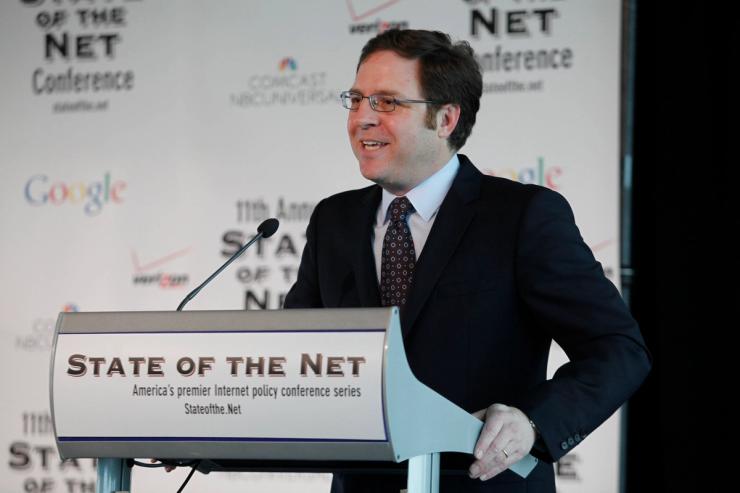The News
The federal government is formalizing its behind-the-scenes consultations with the new AI giants as the US battles for position in the global AI race.
The Department of Commerce’s National Telecommunications and Information Administration, along with the US Department of Energy, put out an open request for comment Wednesday, asking industry leaders and experts to help lay the groundwork for new policies meant to aid and secure data centers in the coming years.
“We have heard privately from many sources about the coming demand, particularly driven by AI. This is a chance to transparently create a public record for future action to meet that growing data center demand,” said NTIA administrator Alan Davidson in an interview with Semafor. Makers of massive “foundation models” like ChatGPT, Claude and Gemini have long spoken informally with policy leaders to prepare them for the next step of AI advances.
“Companies are concerned about power supply. They’re concerned about security and cyber security standards. They’re concerned about the workforce,” he said.
Davidson, who also serves as Assistant Secretary of Commerce for Communications, said the federal government is also eyeing the needs of small- and medium-sized companies, academic institutions and researchers who need access to powerful data centers that now are mainly owned and controlled by private industry.
In this article:
Know More
Policy around technological growth has become a big topic in the tech industry as the election approaches.
And laws regulating AI have become a political lightning rod, particularly in California, where industry leaders and some Democratic lawmakers have called on California Governor Gavin Newsom to veto SB 1047, a comprehensive AI bill.
At the same time, tech companies like OpenAI and Microsoft are looking to the Middle East for sources of funding and potentially cheaper electricity and infrastructure to build the massive new data centers they believe will be required for the next leap in AI capabilities.
National security officials are already concerned about US adversaries like China and Russia stealing secrets from American companies, whose security defenses are currently vulnerable to espionage from determined and well resourced nation states.
“Companies shouldn’t have to take on nation states all by themselves and we do think there’s a role for the federal government there. That’s part of what we need to hear from industry about,” Davidson said.
Reed’s view
We’re going to be paying a lot more attention to the federal government’s role in AI development in the coming months and years.
If AI capacity keeps growing as the amount of compute available increases, two things are likely to happen. First, the energy requirements of AI will surpass what the US can currently handle. Second, the models will become so powerful that they will become strategic national security assets.
If the US can’t produce enough energy for the AI revolution, other countries are waiting in the wings. And if the development of the most advanced AI models happens outside the US, it will be much more difficult to guard the intellectual property from the prying eyes of America’s adversaries.
The risks might not materialize. But the challenge for policymakers is that there’s no time for a wait-and-see approach.
At the same time, policymakers have constituencies that would like to see the development of AI slow down. Some people are worried that AI will lead to job losses and wreak economic and social havoc. Some fear AI will become a threat to humanity.
So, how can the US simultaneously facilitate a politically unpopular acceleration of AI while protecting its citizens from all the potential downsides?
Let’s hope today’s request for comment will yield some smart responses from those in industry.
Room for Disagreement
Left-leaning advocacy group Good Jobs First calls subsidies for AI datacenters a waste of taxpayer funds:
“In the upcoming year, we expect to see many more data center investments and more secretive subsidy deals, driven in large part by AI infrastructure investments. Data Bridge Market Research expects such spending, which includes data centers, to reach nearly $423 billion by 2029. Companies surely plan to ask for taxpayer support to offset those costs.
To go with those, we hope to see more local communities standing up to big tech companies and more public officials voicing skepticism about the promised economic benefits of these projects, and for residents to weigh in before any deals are finalized.”
Notable
Bloomberg reported Tuesday that OpenAI CEO Sam Altman isn’t waiting around for the US government to bolster AI efforts. Rather, he has been courting Canada, Korea, Japan and the United Arab Emirates in an effort to build out data centers and energy production to power new and increasingly large AI datacenters.


